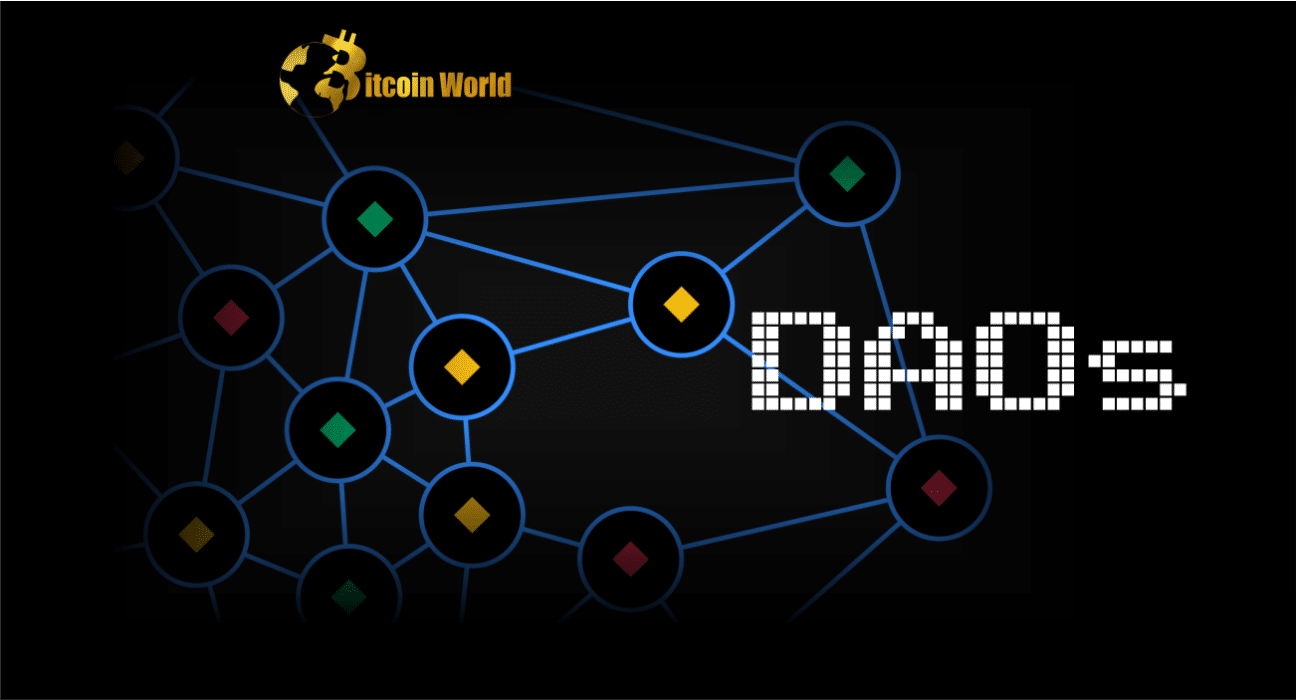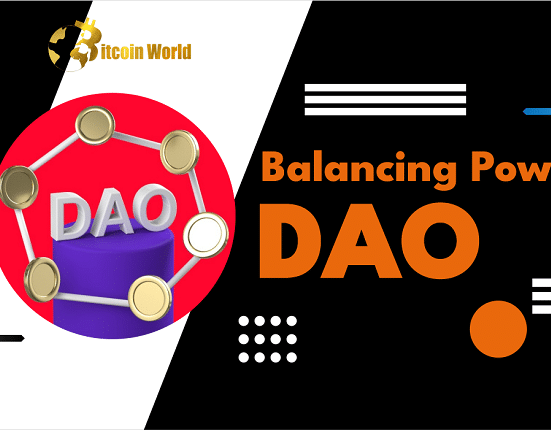As the field of blockchain technology grows, Decentralized Autonomous Organizations (DAOs) are at the forefront of innovation. They reevaluate conventional wisdom regarding government, cooperation, and the creation of values. These creative companies leverage decentralized networks, smart contracts, and cryptographic protocols. They support project execution, resource distribution, and collective decision- making. Examining the intricacies, challenges, and potential of DAOs is essential given the growing need for decentralized solutions. They have an impact on the future development of digital ecosystems.
THE GENESIS OF DAOS:
The concept of DAOs traces its roots back to early blockchain enthusiasts envisioning decentralized, transparent, and inclusive organizational structures. The launch of Ethereum, with its programmable smart contracts, provided foundational infrastructure for DAO development. It enabled participants to interact, transact, and govern without intermediaries.
UNDERSTANDING THE ANATOMY OF DAOS:
At its core, a DAO is a self-governing digital entity that operates autonomously according to predefined rules and protocols. These rules are encoded in smart contracts, immutable pieces of code that execute predetermined actions based on inputs from participants. DAOs typically consist of token holders who have voting rights proportional to their stake in the network, enabling them to influence decisions regarding funding, project direction, and protocol upgrades.
TYPES OF DAOS:
DAOs come in various shapes and forms, each tailored to address specific needs and objectives within the decentralized ecosystem.
- Protocol DAOs: These DAOs govern decentralized protocols and platforms, overseeing functions such as asset management, lending, and decentralized exchange. Examples include MakerDAO, Uniswap, and Compound Finance, where token holders participate in governance decisions to shape the future of the protocol.
- Grant DAOs: Grant DAOs are dedicated to funding projects, initiatives, and research efforts within the blockchain ecosystem. They operate on principles of transparency, accountability, and community-driven decision-making, empowering stakeholders to allocate resources to impactful endeavors. MolochDAO and GitCoin DAO are notable examples in this category.
- Social DAOs: Social DAOs foster collaboration, knowledge-sharing, and community-building among participants with shared interests and goals. These DAOs provide platforms for developers, artists, and enthusiasts to collaborate on projects, earn rewards, and contribute to shared objectives. Developer DAO and Friends with Benefits exemplify the collaborative spirit of social DAOs.
- Collector DAOs: Collector DAOs pool resources to acquire and manage digital assets, including non-fungible tokens (NFTs), art, and collectibles. By leveraging collective resources, members gain access to exclusive assets and investment opportunities. FlamingoDAO and ConstitutionDAO are prominent examples of collector DAOs making waves in the digital art space.
- Investment and Venture DAOs: These DAOs enable individuals to pool capital and invest in early-stage startups, projects, and decentralized protocols. Venture DAOs democratize investment opportunities, allowing a diverse range of participants to support innovation and entrepreneurship. Krause House and Aave Protocol showcase the potential of investment DAOs to drive growth and innovation in the blockchain ecosystem.
CHALLENGES AND OPPORTUNITIES:
While DAOs hold immense promise, they also face challenges related to governance scalability, regulatory compliance, and security vulnerabilities. Scalability issues may arise as DAOs grow in size and complexity, requiring robust governance mechanisms and infrastructure to sustain operations. Regulatory uncertainty poses challenges for DAOs operating in a rapidly evolving legal landscape, necessitating collaboration between industry stakeholders and policymakers to establish clear frameworks and guidelines.
CONCLUSION:
Decentralized Autonomous Organizations represent a paradigm shift in organizational governance, offering a decentralized framework for collaboration, innovation, and value creation. As the DAO ecosystem continues to evolve, it holds the potential to democratize access to finance, empower communities, and redefine traditional models of organization and governance. By embracing the principles of decentralization, transparency, and community-driven decision-making, DAOs pave the way for a more inclusive, equitable, and resilient digital future.
In conclusion, DAOs embody the spirit of decentralization and collective empowerment, heralding a new era of innovation and collaboration in the digital age. As stakeholders embrace the potential of DAOs to drive positive change and create value, the journey towards decentralized governance and economic empowerment accelerates, shaping a more inclusive and resilient future for all.














